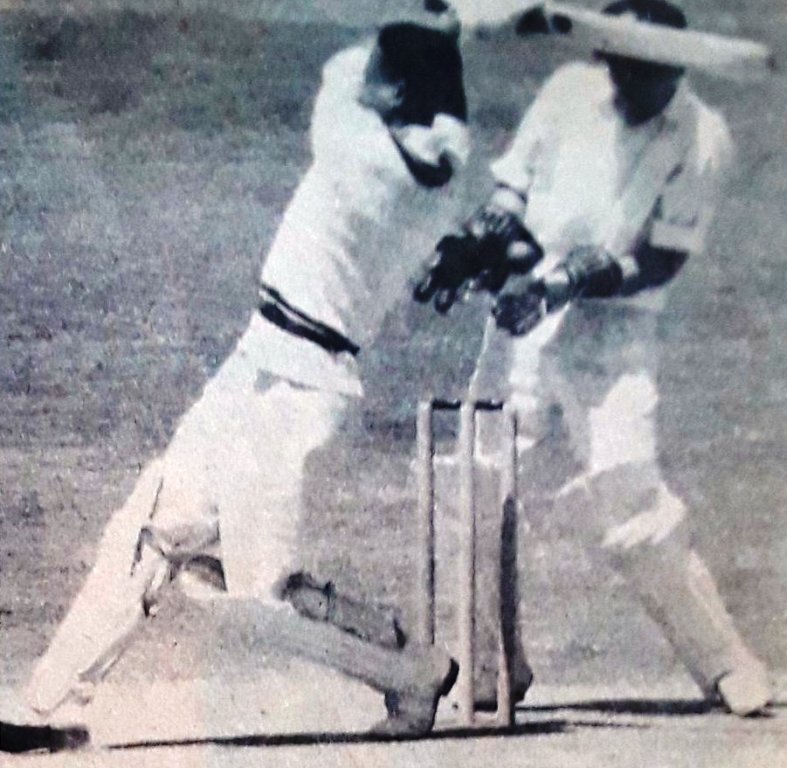Man you are too slow. The greatest batsman I’ve seen is Norman O’Neil. When Sobers was at the nets for South Australia in January 1962, an article written by Bob Simpson Sport-star, July 27, 1985.
He may not have had the dynamic personality of Wes Hall or the suicidal brilliance of Rohan Kanhai. He was a performer who always gave great value for money,” says Bob Simpson. “Sobers spell genius”. ‘Man, you are too slow’.
In early October 1960, Des Hoare, the wild bull of Australian cricket and one of the fastest and most feared bowlers in the country, charged in from the river end at the WACA ground in Perth and, with a southerly wind behind him, hurled the ball down. At the other end, the slight, almost unknown figure laconically uncurled and thumped the raging bouncer to the fence.
Des Hoare momentarily stood stunned at the end of his follow-through and then let loose an outburst that would have done proud some of our modern-day sledges. Gary Sobers, who had not moved since the shot, turned around and quietly retorted, Oh, man you are too slow to bowl bouncers, and if that is your best, you may as well stop mouthing off also.”
Des Hoare exploded, returned to his mark, and gave the next three deliveries all his emotion and venom. The results were the same, and with 16 off four balls and the perfect retort, the love affair between the Australian public and Gary Sobers had begun.
Momentous: Some months later, the affair was sealed when Sobers took the Australian attack to pieces in the first Test in the best innings that I have ever seen. That innings and that match proved to be just about the most momentous that have been played in Test cricket. Not because it turned out to be the only tied Test in cricket history, but because it changed the course of Australian, West Indies, and world cricket.
After Sobers’ onslaught in Perth, the West Indians resorted to their usual pattern of cricket at a time of total inconsistency. Losses to several of the state teams as they moved around Australia worried the administrators so much that they feared a financial disaster for the tour. So serious was the situation that Sir Donald Bradman asked special permission to speak at our pre-test team meeting and implored the Australians to do their utmost to play entertaining cricket in a bid to salvage as much out of the tour as possible.
Gary Sobers takes a violent tilt at the author, misses, and the ball is collected in a Sheffield Shield game. Some of his knocks for South Australia are part of the folklore. The Don Bradman was right on one score; a salvage operation was necessary, not to save the tour, for with Sobers leading the way It turned out to be one of the greatest and most popular ever played, but to ensure a win for Australia in the series, Sobers clicked, I believe, with the Australian public because it was felt he played the Australian way.
The Australian public liked his ‘laid-back’ attitude and the 100 percent effort he gave to the team. While he may not have had the dynamic personality of Wes Hall or the suicidal brilliance of Rohan Kanhai, he was a performer who always gave great value for money.
Too good to be true: Garry Sobers was the perfect mold of the Australian public’s concept of what an Australian all-rounder should be. He batted with audacious flair, bowled fast, swung, orthodox spin, or chainmen with equal aplomb, and fielded in any position like a genius. In many ways, at his peak, he had the hallmark of a comic strip hero—too good to be true.
But in reality, he was able to do it all without apparent effort, and of course, he did it with charm, humor, and a spirit of good sportsmanship. No fiction writer would have dared to have penned his feats for fear of being considered too farfetched.
While there may have been other all-rounders with impressive records, I believe that Sobers spelled genius, like Don Bradman who was far above the other mortals of the game. The two of them should not even be used as comparisons in any context.
Australians were indeed fortunate with Gary Sobers, for they probably saw the beat of him, not only in Tests for the West Indies but for his adopted state, South Australia, which he served so loyally and with such distinction, and the World XI.
Some of Sobers’ performances in Shield cricket are part of the folklore of Australian cricket. Not the least of these was the enormous hit off the bowling of Alan Davidson which ended under the scoreboard at the Adelaide Oval—a hit of over 180 yards.
Sobers, a resident of Melbourne today, is still very much here. His coaching classes are eagerly sought after, and his appearance still arouses that unique affection reserved for real heroes.
Read More: Alvin Kallicharran – A Marketing Student Turned Professional Cricketer
